When Nina Funnell met up with Grace Tame in Hobart recently, she wanted to give her a gift that captured everything they’d worked so hard to achieve. After two years of campaigning, through doubt and tears and dogged perseverance, these two women had secured legal assent for something both extraordinary and yet, to most of us, utterly reasonable: the permission for Grace to talk publicly about her sexual assault.
In the age of #Me Too, it seems astonishing that anyone should be denied the opportunity to share their story. But under archaic laws that exist only in Tasmania and the Northern Territory, survivors of sexual assault are forbidden to talk to media about their cases. No such restrictions apply to the perpetrators of the crime. Nina describes this legal gag – proscribed under section 194k of the Evidence Act – as “absolutely horrifying”.
Back in 2010, when she was 15 years old, Grace had been groomed and then sexually abused by her 58-year-old maths teacher, Nicolaas Bester. He was jailed in 2011 for two and a half years for his crimes, but Grace’s public ordeal wasn’t over.
Survivors of sexual assault are forbidden to talk to media about their cases
After his release Bester boasted on Twitter about what he’d done (resulting in further jail time), and gave a self-pitying interview with conservative commentator Bettina Arndt that was posted to YouTube.
Grace, meanwhile, had been unable to refute anything he said – until a few weeks ago when, after a long and expensive legal challenge, the Supreme Court granted an exemption to the gag.
Both Grace and Nina flew to Hobart to record interviews with the ABC’s 7.30 Report, which would break the story.
“We were just about to sit down and film and I just wanted to say to her that this was a really momentous moment in her life, and there were people in her corner who believed in her,” recalls Nina. So she gave Grace the present she’d brought from Sydney – a bound copy of 5000 signatures they’d received for a petition calling for Tasmanian law to change.
Grace opened the book and started to read. It was a moment Nina will never forget.
“When it had come out that she’d been sexually abused by Bester, some of the girls at school had bullied and teased her,” says Nina. “But what was really extraordinary was that when she started reading the petition, Grace saw that a lot of the names belonged to those girls.
“Finally they understood the seriousness of what had occurred and, through their own maturity and learning, had arrived at an understanding of why her story mattered.”
There’s a pause now as Nina struggles to fight back tears. “When Grace saw those names, she put out her arm and she said, ‘Nina, look at this.’ She was covered in goose bumps. She said, ‘I can’t believe they support me, and it’s come full circle.’ And that… that was me gone.”
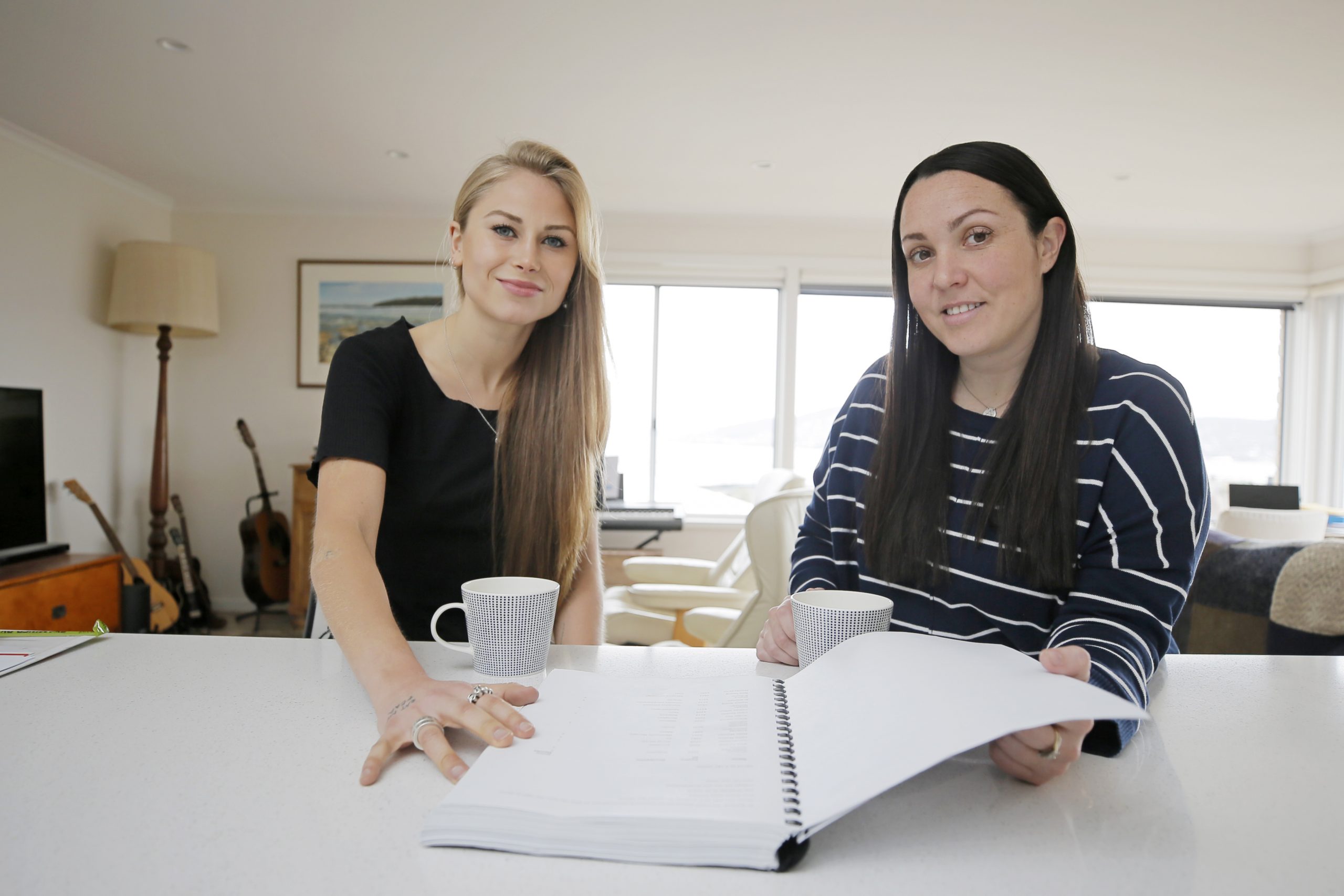
Not only did the Supreme Court ruling mark the end of a gruelling professional project, but Grace’s journey has an added significance for this smart, passionate journalist and campaigner. “For me, this was deeply personal and I absolutely wanted to champion this story and see it published no matter what it cost us,” Nina says. “As a fellow survivor of sexual assault, it was a very important part of my own recovery that I’d had the opportunity, the option, of being able to tell my story and be able to reclaim control. I was outraged that Grace did not have the same options open to her that I had.”
As a 23-year-old honours student at the University of Sydney in 2007, Nina had been attacked one night as she walked back to her parents’ North Shore home after drinks with friends. A man she’d never seen before grabbed her from behind and held a boxcutter blade to her throat as he dragged to a nearby park. “I am going to kill you,” he said, as he violently assaulted her. Somehow, she managed to fight him off.
Writing and talking publicly about this experience was an important factor in Nina’s emotional rehabilitation. “For me, being able to tell my own story had been a really pivotal part of my recovery, and it had been a turning point for me where I had been able to reclaim a sense of ownership and control over that event in my life,” she says.
As a fellow survivor of sexual assault, it was a very important part of my own recovery that I could tell my story
Since then, Nina, now 37, has written extensively on violence against women, winning a prestigious Walkley award for her campaign to end sexual assault at universities and colleges through education and policy reform. She’s now a director of the advocacy organisation, End Rape On Campus.
Two years ago, when she contacted Nina, Grace was 22 years old and had moved to Los Angeles, where she was working as an artist. Geographically, she was distanced from her abuser, but her mother, Penny, was still in Hobart.
Unfortunately, both Penny and Bester were enrolled as mature-age students at the University of Tasmania. “Penny kept running into her daughter’s abuser on campus, and was highly traumatised,” says Nina. “He was also becoming more brazen… Meanwhile, Grace had reached the stage in her recovery where she was ready to correct the misinformation about her case. A lot of journalists in Tasmania had inaccurately referred to the abuse as a relationship and Grace wanted to be able to correct the record.”
Although Nina was keen to help Grace rectify some of the untruths and misconceptions that surrounded her case, she quickly discovered she could face prosecution if she wrote Grace’s story. “In 2012, a Tasmanian outlet named a rape survivor who had fully consented to be named,” says Nina. “The story was absolutely sensitive, ethical and appropriate, yet still the Director of Public Prosecutions went after the journalist and the publication, and they were hit with a $20,000 fine, which of course has a chilling effect on the rest of the Tasmanian media.”
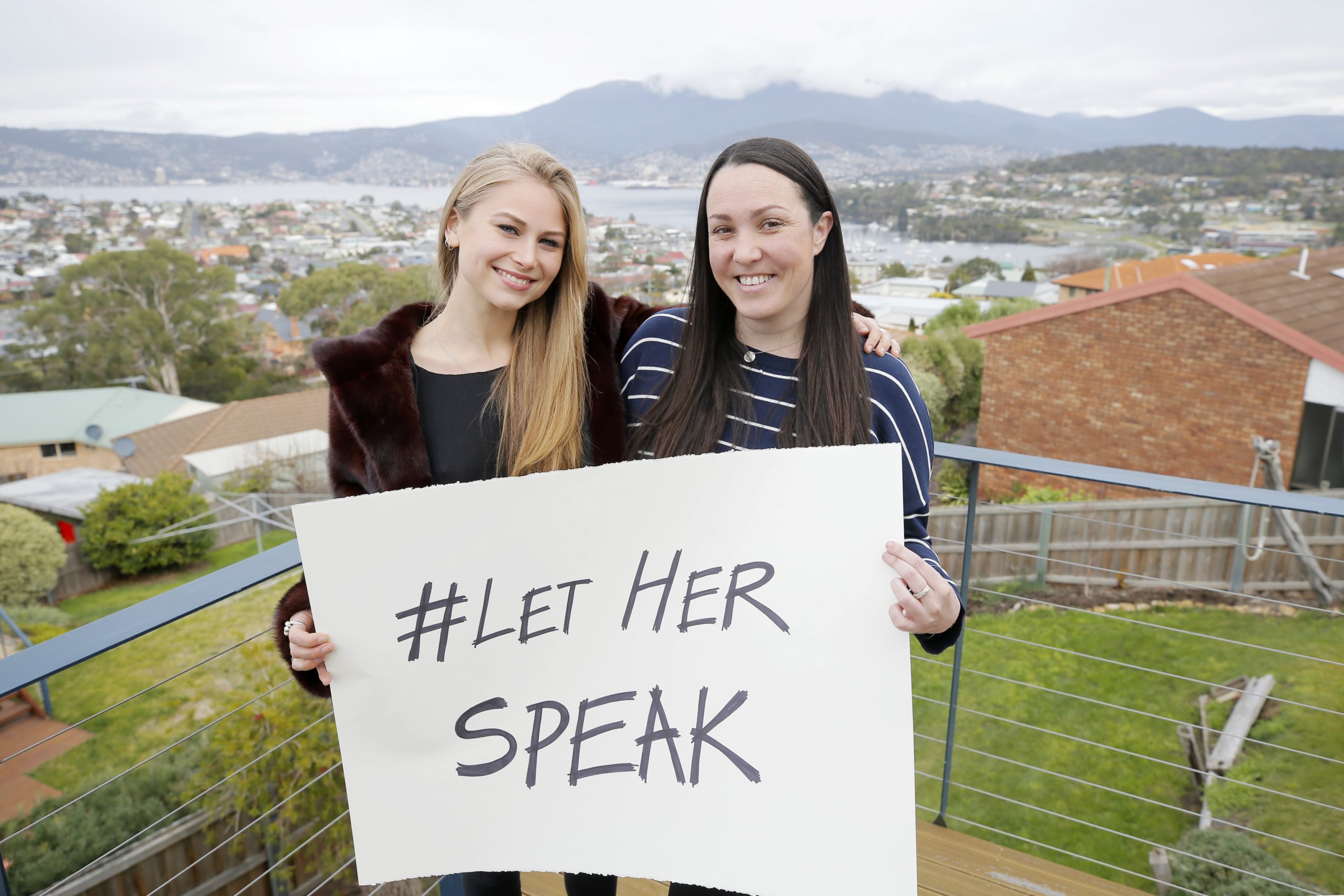
Grace and Nina’s research revealed only three abuse survivors had managed to obtain exemptions to the Evidence Act enabling them to talk about their abuse, but despite this they began the process to convince a Supreme Court judge that Grace’s story deserved to be told.
For survivors of abuse, this can be retraumatising, says Nina. “It means the victim is now reinscribed in another court process, where they feel powerless all over again,” says Nina. “They have the further humiliation of having to convince somebody else that their story matters. It’s the only crime in Tasmania where a victim has to essentially ask permission from the state to be able to talk to a journalist. And that process of being forced to ask permission is in and of itself a denial of agency and voice.”
Working in two different continents, Nina and Grace managed their campaign via weekly Skype calls – “it meant one or the other of us was usually in pyjamas or half asleep,” Nina laughs. Then, more seriously, “I can’t even put it into words. It’s been very emotional. I wrote her a card the other day when I gave her the petition and I think I said something like, ‘I’ve known you first as a journalist, then as a fellow campaigner and now as a dear friend for life.”
It’s the only crime in Tasmania where a victim has to essentially ask permission from the state to be able to talk to a journalist
“Everyone is so energised by Grace getting the court order and her decision to speak, but at the same time there’s a bittersweet feeling for women like Leia,” adds Nina. “At the same time as they’re applauding her, they can’t say publicly, ‘As a sexual assault survivor I applaud you,’ without breaking the law.”
That’s why, Nina has vowed to continue to fight for law change in Tasmania. “I’m really conscious the fight isn’t over for me. With this kind of campaigning, you stop and celebrate the wins, but then tomorrow it’s back to the grind.
Although Tasmania’s Attorney General Elise Archer is currently reviewing the gag law, at the moment it still stands.
“It’s right to mark Grace’s achievement but we can’t lose sight of every other person in Tasmania right now who’s gagged and kept in the shadows,” says Nina. “They also need our support.”
If you or someone you know needs support, call 1800 RESPECT, the national counselling and support service. You can contribute to Leia’s GoFundMe campaign to help raise legal funds here.




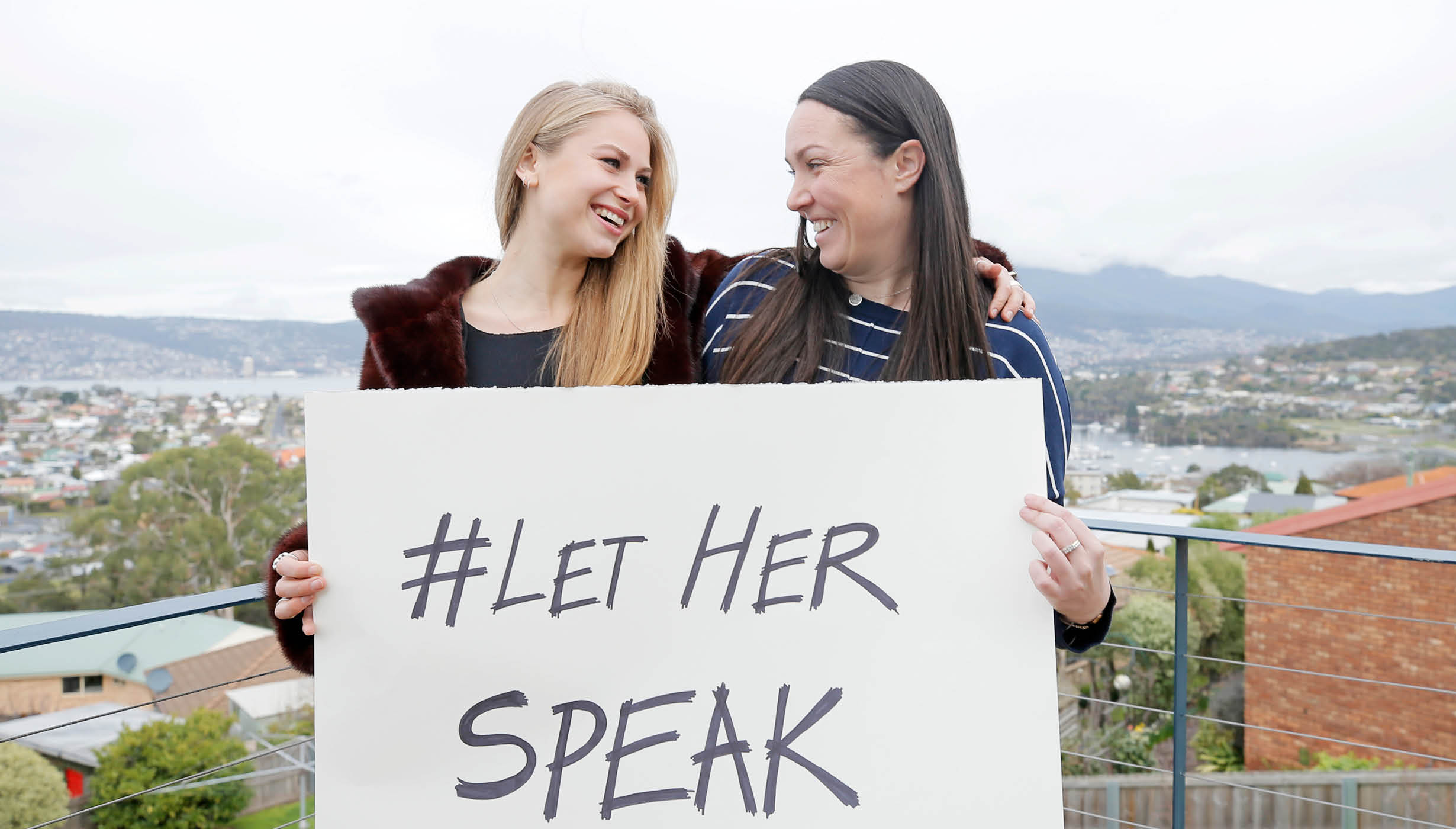



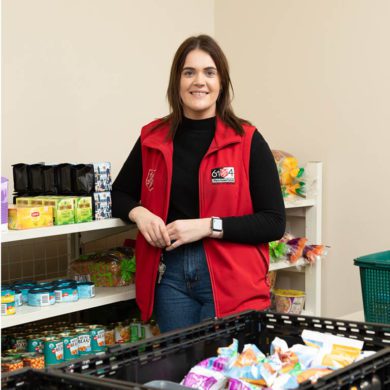
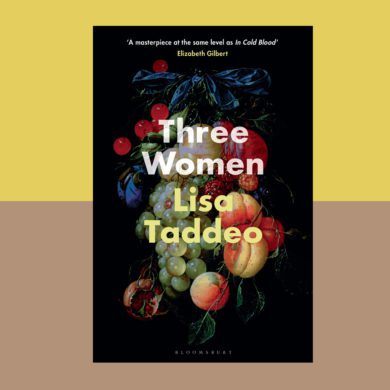




No Comments